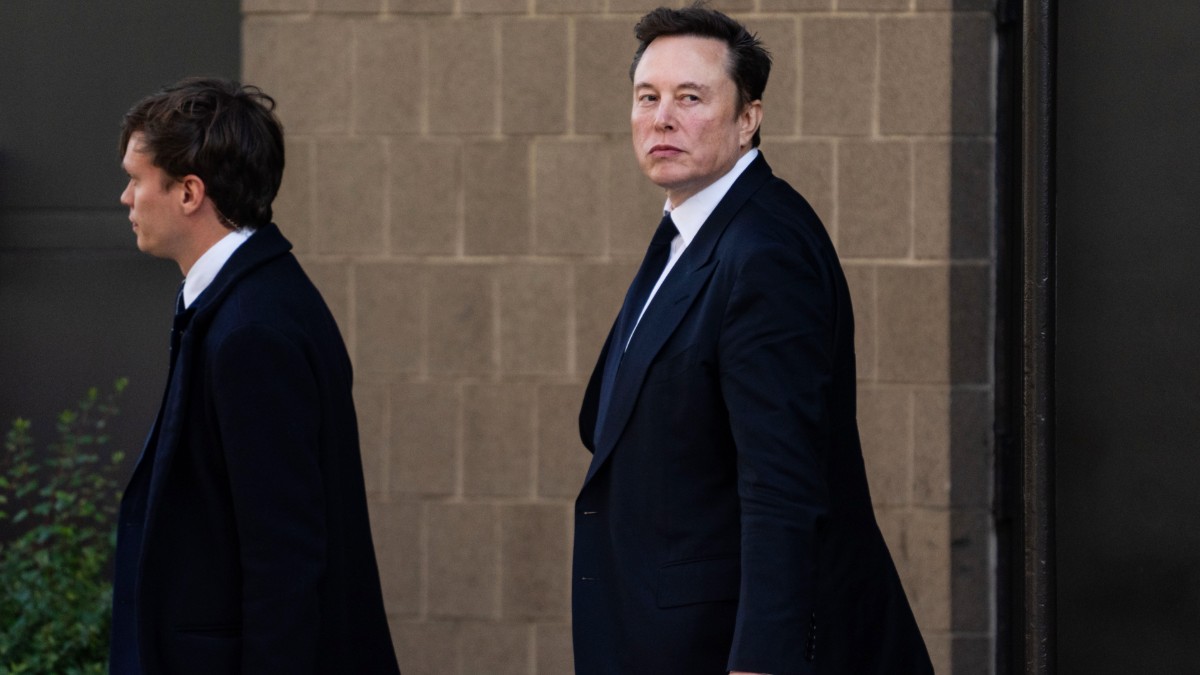‘Large-scale firings’: Elon Musk wants to end remote work for good

One of the measures Elon Musk and Vivek Ramaswamy are contemplating integrating as the Department of Government Efficiency (DOGE) co-heads is ending remote work and instigating “large-scale firings.”
Since Donald Trump was re-elected President of the United States, federal workers have been bracing themselves for a major overhaul. The plan for large-scale firings was first outlined in Project 2025, a right-wing manifesto that called for gutting the civil service and replacing as many federal workers as possible with vetted Trump loyalists. Although Trump denied connections to Project 2025 during his campaign, he boasted a similar plan in his Agenda 47 and called for “restoring the president’s authority to fire rogue bureaucrats.” Since Trump announced the establishment of DOGE, which promises to dramatically slash government spending, Musk and Ramaswamy are expected to commence a form of his Agenda 47 plan. Recently, the pair outlined an idea for sparking voluntary resignations in the federal government.
Elon Musk and Vivek Ramaswamy suggest ending remote work
In an op-ed for The Wall Street Journal, Musk and Ramaswamy suggested ending remote work in the federal government. During the COVID-19 pandemic, many federal employees began working remotely. However, after the pandemic, some workers continued working remotely or in hybrid work environments. In May, a report found that telework-eligible federal employees spend roughly 61.2% of their work hours in person. Remote work policies vary by agency as each chooses the policy that best suits its needs, allowing about 1.3 million federal workers to qualify for telework.
Now, Musk and Ramaswamy want to end all remote work in the federal government, suggesting these workers don’t deserve to be paid unless they show up for work five days a week. They wrote, “Requiring federal employees to come to the office five days a week would result in a wave of voluntary terminations that we welcome: If federal employees don’t want to show up, American taxpayers shouldn’t pay them for the Covid-era privilege of staying home.” It’s uncertain how many jobs this measure would reduce, but it certainly would disrupt the lives of some federal workers. Workers who moved during the pandemic will be faced with the necessity to move closer to Washington, D.C., which isn’t a plausible option for many. Another factor to consider is that many of these remote workers don’t even have office space to return to, as their offices were given away when they moved to remote work.
It’s not surprising Musk and Ramasamy are considering this measure, as Republicans have been attempting to end remote work in the federal government for years. Each time, they’ve been met with resistance from labor unions and Democrats. Working from home and hybrid policies allow for greater flexibility, higher job satisfaction, a wider array of talent, and lower job turnover. A lot of WFH individuals clock in extra hours when not confined by physical location. Yet, Republicans frequently gloss over the advantages of remote work and attempt to disparage remote workers as “pretending” to work. It’s strange that the party that claims to be “pro-family” has always been the most adamant about eliminating any flexibility in jobs.
Meanwhile, in addition to potentially pushing voluntary resignations by ending remote work, Musk and Ramasamy also suggested there would be forced terminations. They suggested instigating “large-scale firings” to correspond with a “drastic reduction in federal regulations.” According to them, Trump will eliminate “thousands of regulations,” and they suggest firing as many federal workers. Their op-ed also suggested stripping agencies to “the minimum number of employees required at an agency for it to perform its constitutionally permissible and statutorily mandated functions.”
The major problem with Musk and Ramaswamy’s drastic plans is that it’s unclear if the pair know anything about government functions and how the workforce operates. If they go through with their plans of “large-scale firings” on top of pushing resignations by getting rid of remote work, there’s fear that they’re going to cripple vital services provided by government agencies and federal workers.
Have a tip we should know? tips@themarysue.com